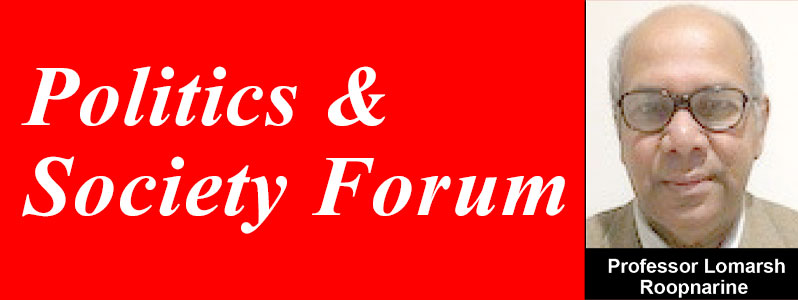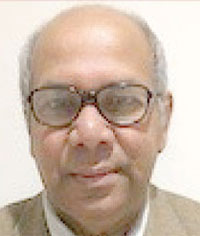ON December 21, 2018, Charrandass Persaud, a backbencher in the APNU/AFC coalition government, delivered a bombshell when he voted with the then PPP/C opposition on a No-Confidence Motion (NCM) against his sitting government. What happened next resembled a heretofore scene of sheer pandemonium revealing that the government of the day had fallen. Within hours, the government accepted the NCM and indicated that it would hold fresh elections in ninety days as mandated by Guyana’s constitution. A slew of reports emerged such as the New York Times’ Guyana’s Government Falls in No-Confidence Vote confirming that the government had indeed taken an unexpected nosedive from “grace to gutter.” The government, we learned, declared its intention to acquiesce to the demands of the NCM. Meanwhile, Persaud reiterated that his motive was based on his conscience, a declaration that was challenged immediately by a host of inchoate theories that Persaud was in cahoots with the opposition.
Then something strange happened. From the casket of despair and disappointment, the government declared that it would challenge the NCM in court on its interpretation as to what constituted an absolute majority in the National Assembly. The APNU/AFC coalition upheld the position that PPP/C needed not one but two extra votes for the motion to be successful. The argument was that half of 65 was 32.5, but since there could be no half vote, the figure would be rounded to 33 and that an absolute majority could only be possible from 34 votes. Upon learning of this bizarre argument, some individuals became angry, while others were chortling. Some were egging the government on to hold on to power with the hope of castling their access to the political feeding trough. Notwithstanding these dynamics and the flipped position of the caretaker status government, the legal battles that ensued to justify that the NCM was invalid, were defeated and dismissed by Guyana’s High Court and the Caribbean Court of Justice, Guyana’s final or apex court. The rest is now a history of historical pappy shows.
Perhaps every Guyanese is familiar with the NCM and its associated shenanigans and might ask: why even entertain an event that occurred two years ago? I find and feel no great pleasure in writing about the NCM. I am paying attention to the NCM not to provide an antechamber to criticize a once “rising” administration but rather to contextualize and historicise it as an interesting moment in its own right. I do not think I am off, although some may scoff at me for rubbing new salt in an old wound. When the modern history of Guyana is written, however, the events of the NCM should be analyzed in-depth and not be relegated to passing notes.
I suppose there are many lessons to be learned from the NCM. One lesson is that power is dispensable not only at polling stations but also through a NCM in Parliament, sometimes requiring just a single vote. The APNU/AFC coalition government slipped into power with a slim majority but paid little heed to its fragile coalition status. The administration, in Guyanese local parlance, was simply power-drunk, unloading undeserved benefits such as salary increases onto itself while practically ignoring the masses. Do you remember the closing of the sugar estates without any alternative plans? This reckless rut was happening in an atmosphere when the political appointees/recipients of handouts had gone past their political shelf-lives and outlived their usefulness.
The leadership was so confident in bluffing the citizenry with faux so much so that it became unphased by what William Shakespeare said in Hamlet, “Something stinks in Denmark.” Au contraire, the administration gravitated to the following Chinese proverb, “Heaven is high, and the Emperor is far away” allowing its absolute hierarchy free rein while the head honcho had limited knowledge as to what was going on in his flock of chieftains. What is even more disturbing is that these behaviours had not only damaged the practice of just politics in unprecedented and irreparable ways but to bring these individuals – who want to return to power – to any sort of clean and uncaged image would require more than what the most erudite psychologist can offer.
I am confident that Guyanese will remember the No-Confidence Motion that occurred on December 21, 2018, and the APNU/AFC coalition’s determination to dodge and defy it. (lomarsh.roopnarine@jsums.edu).











